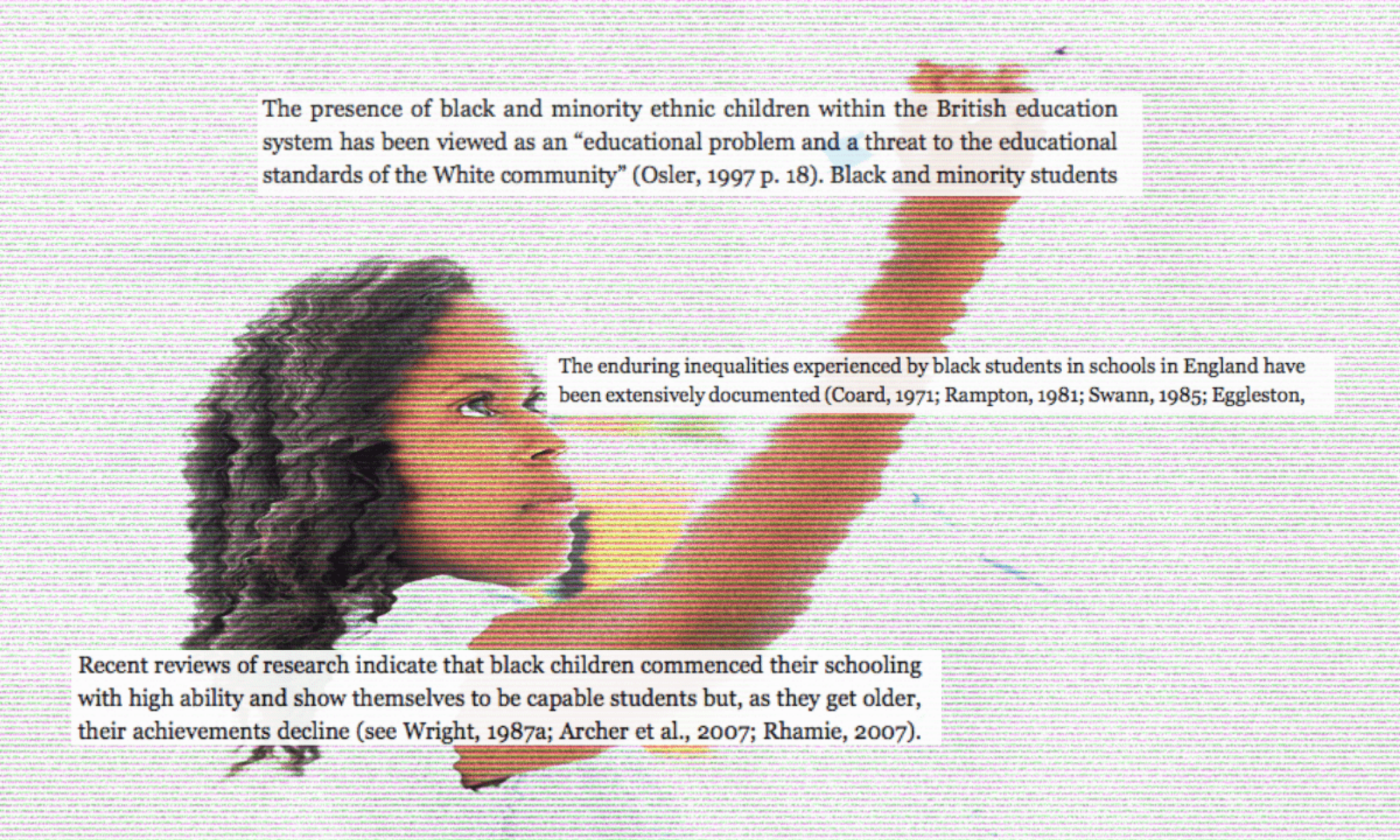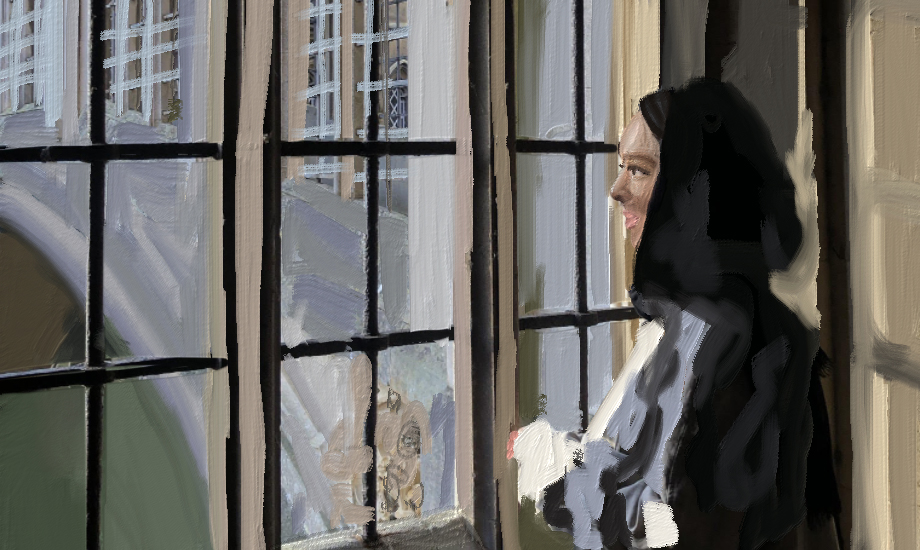
Canva
For black students, badly-predicted grades are the tip of the iceberg
You're more likely to have your exam grades incorrectly estimated as a black student – but this isn't the only reason we should be worried about how the education system treats marginalised students.
Leah Cowan, Niellah Arboine and Kemi Alemoru
31 Mar 2020
News that GCSE and A-Level exams are to be scrapped due to coronavirus might, for some students, initially provoke celebration. No more school? Great, time to queue up your watch list on Netflix! Perhaps a perfect moment to double down on your TikTok output. However, with results being worked out based on predicted grades, mock exams, and coursework – what may have originally seemed like a stress-free solution to summer examinations – has sparked concern. Black students are more likely to have their grades incorrectly estimated by a huge margin: analysis reveals that a mere 39.13% of black students receive accurate grade predictions.
The challenges and discrimination that black students face throughout their educational journey is multi-layered: data consistently shows that black students are more likely to either have their academic abilities under-estimated, or to not make the grades that are predicted for them. The fact that grade predictions clearly aren’t working for black students requires attention. It’s not enough for teachers to give black students aspirational “targets” if the evidence is showing that black students don’t have the support they need to make the grade.
Conversely, if teachers are also under-estimating black students’ abilities, questions need to be asked about what schools and teacher training courses are doing to proactively address racist attitudes among teaching staff.
Speaking to the BBC, Education Secretary Gavin Williamson said that children in England and Wales will be given grades under a “different process and a different system” to usual exams, but this has not reassured the many students whose hard work in the pre-exam period might now go unrecognised. A new petition started by a teacher on Change.org, which now has over 124,000 signatures, asks the government to “allow teachers to give honest predicted grades for their students”. The petition explains: “We know [students] as more than just statistics. We are not going to try to ‘cheat the system’”. So far, the government is yet to come up with a solution.
Teachers’ low expectations risk holding us back
Many marginalised students and adults took to Twitter to air their concerns and share their own experiences of having their grades underpredicted. Black Girls Bookclub, founded by Melissa Cummings-Quarry and Natalie Carter, tweeted, “Sorry, but every Black child in my year group exceeded predicted grades by at least 2/3 scales. Please don’t sign this petition. It doesn’t account for teacher bias”.
Similarly, Ajibola Ayorinde, who is now 27, remembers how his teachers underestimated his ability while he was studying for his A-levels. “I was predicted down internally to BBC based on January exams, but by then [I] had already got the offer I really wanted. I came out with A*AA.”
He continues: “I’d say that as a black student, there were definitely certain unconscious biases that work against you and impact teachers’ abilities to see your true potential. Anonymised exams remove those biases and allow the results to speak for themselves. Without the opportunity to take them you’re depriving those students of the chance to operate on a more level playing field.”
19-year-old Bobby Mugo, who is studying History and Politics at the University of Cambridge, agrees that a “combination of class barriers and racial prejudice” impact the predicted grades and support for black children. “I was predicted Bs and Cs, but most of my subject grades were As and A*s,” he explains. Not only did many black kids in his class exceed their predicted grades, they did so after being discouraged from making “aspirational choices”. “I think a lot of students would suggest certain career paths, like medicine and law, to be told that there were more realistic options.”
Black students are also more likely to miss their predicted grades
As Laura McInerney, Chief Executive of an app which collates teachers’ opinions about the UK education sector, explains in the Guardian: predicted grades are “notoriously inaccurate”, with 84% of predictions missing the mark. In particular, data consistently shows that black students are not making the target grades teachers assign to them. Gary Loke, Director of Knowledge, Innovation and Delivery at a higher education research and development charity describes the problem facing black students as “systematic bias”. Gary urges educators to recognise the “multiple layers of compounded disadvantage experienced by BME students”.
One study by Lambeth Education & Learning suggested that the race attainment gap could partially be attributed to teachers’ low expectations of black students (irrespective of their predicted grades) damaging students’ motivation and confidence. While Gypsy Roma and Traveller of Irish Heritage pupils have the highest school exclusion rate, black Caribbean pupils are also some of the worst affected by institutional racism in schools – they are three times more likely to get excluded from school compared to white students. When it comes to the GCSE attainment gap, in a 2019 article, Guardian notes that since 2011, black Caribbean pupils have been 2.2 months behind white British students in their schooling.
The class attainment gap
Students from lower-income households are twice as likely to fail key GCSEs like maths, and a 2017 report by the Sutton Trust showed that pupils from low-income families receive lower predicted A-level grades than wealthier ones. The education charity has called for an end to university admissions based on predicted grades.
Andy*, an A-level teacher from Norfolk, expresses concern that using predicted grades would hit students who don’t attend private schools the hardest. “In my experience, students really bring it together at the end so it feels really unfair,” he explains. He also expresses concern that using coursework which has already been submitted as a guide for grades broadly would skew against state school students, remarking that, “Private schools cheat on coursework already, so if that’s used as a guide, that is also really unfair as most of my students do better overall than in the coursework”.
Black students are, in general, a minority at private schools, and moves to increase admissions of black students are sometimes framed as a social experiment to diversify the types of people that wealthy white students interact with – for the benefit of those white students. Andy also noted that students have a lot of scope to improve between the time that grade predictions are benchmarked, lamenting that “students shouldn’t be judged on how good they were at, say, Christmas”.
Time to scrap predicted grades and tackle racism in education
Leaving assigning grades in the hands of teachers whose assumptions about students’ abilities are impacted by institutional racism, favouritism and bias, could have devastating and long-lasting impacts on students’ academic and professional careers. However it’s also clear that black students are being failed at every step of their schooling journey – tinkering with grade predictions doesn’t even begin to unpack the discrimination black students face, and will continue to face in academia.
In the short-term, how can the government guarantee that black pupils aren’t going to be affected by this new process for assigning grades, and what could be a fair solution? Another professor we spoke to, Alison*, suggested that the government should take inspiration from how other countries are dealing with the same issue, and explore the option of “remote invigilation”. She hopes that her institution will be looking into expanding the exam period into July, and considering existing technology such as Zoom video calling, to make virtual exams possible. “Students already submit essays online,” she explains, “they are marked online, so this could be extended to exams.”
This debacle, which is still unfolding, is another illustration of the deeply-rooted institutional bias which means that black students have to work twice as hard to be recognised as half as good, at all stages of their academic journeys. As ministers and education leaders scramble to find quick fixes to the challenges posed by the coronavirus pandemic, it is crucial that the needs of marginalised students – who are likely to be hit the hardest by any cost-saving measures – are centred in the creation of new policies and processes.
The experience of moving through school and university is intensely challenging for black students, who are forced to constantly advocate for themselves and deal with being both over scrutinised and overlooked. The context of the public health crisis opens up opportunities to do things differently. Further layers of discrimination must not be baked into an education system that already locks so many of us out.
*names have been changed to protect identities






